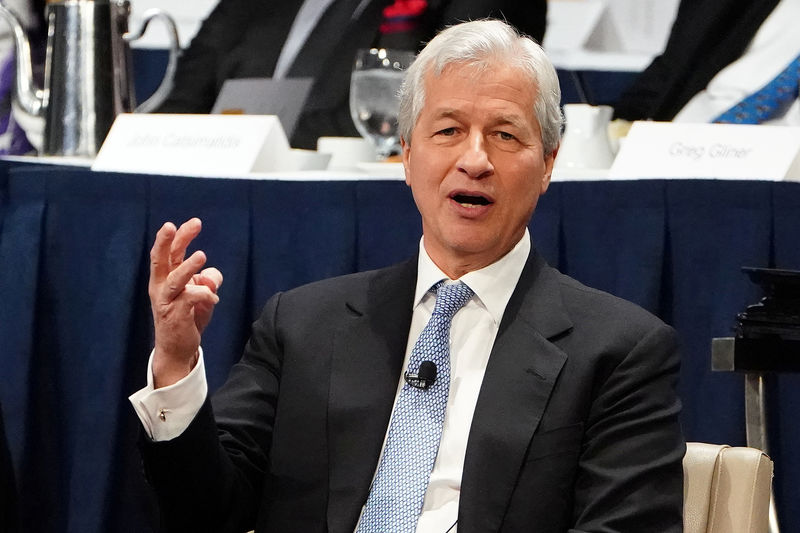 © Reuters. FILE PHOTO – Jamie Dimon, CEO of JPMorgan Chase speaks to the Economic Club of New York in the Manhattan borough of New York City
© Reuters. FILE PHOTO – Jamie Dimon, CEO of JPMorgan Chase speaks to the Economic Club of New York in the Manhattan borough of New York City(Reuters) – JPMorgan Chase (NYSE:) Chief Executive Officer Jamie Dimon, who leads one of Wall Street’s biggest banks, said on Wednesday that the ultra-rich could afford to pay more taxes as a wider political debate rages over increasing taxes for the wealthy.
“I believe that individuals earning the most can afford to pay more, and I have no problem paying higher taxes to address some of the fundamental challenges and inequities in our society,” Dimon said in a statement emailed by JPMorgan, in response to questions posed by reporters over the past week.
“However, we need to ensure that our tax dollars are going where they can be most effective – like expanding the earned income tax credit and other programs that support the people and communities who really need it,” Dimon added.
Dimon’s remarks come as senior Democrats prepare to write a fiscal blueprint this year that would cut annual budget deficits and possibly include tax hikes on corporations and the wealthy.
U.S. Representative Alexandria Ocasio-Cortez, part of a new crop of Democrats that swept into office this year on a stronger liberal platform, has advocated taxes as high as 70 percent on taxable earnings above $10 million. That represents a large increase over the current 37 percent, which kicks in at $500,000 for a single earner.
Meanwhile, Massachusetts Senator Elizabeth Warren, another Democrat and liberal firebrand who has taken on Wall Street, has proposed a tax on the accumulated wealth of the ultra-rich, through an annual payment of 2 percent of the value of net assets between $50 million and $1 billion and a 3 percent rate above that.
Dimon received $31 million in total pay for 2018, according to a regulatory filing by JPMorgan.
Fusion Media or anyone involved with Fusion Media will not accept any liability for loss or damage as a result of reliance on the information including data, quotes, charts and buy/sell signals contained within this website. Please be fully informed regarding the risks and costs associated with trading the financial markets, it is one of the riskiest investment forms possible.
Source: Investing.com




























